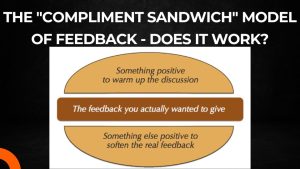The Insider Guide to Careers
Insider information, secrets and tips about getting hired and building careers. For employees and job candidates.
This is the long-form article of a post I made recently.
Recently, there began a controversy in India when respected industrialist Narayana Murthy of Infosys wanted youngsters to work 70 hours a week. This comment kicked up a furore in India, which was similar to the reaction Jack Ma got on the 996 work culture in China. It is not whether one works 70 hours a week or from 9 a.m. to 9 p.m., six days a week. The number of hours worked is a trivial question; it is more important how productive one is and what kind of work one does.
Narayana Murthy had a context to his statement that India had among the lowest labour productivity in the world, which the media conveniently ignored. The Chinese employee is 33% more productive, and the worker from Brazil or Thailand is 100% more productive. The German, South Korean and Japanese economy grew after the Second World War by a fanatic devotion to the workplace.
In the formal sector, many Indian companies are yet to migrate to the high-value-added cutting-edge technologies valued by the marketplace. Many use cost arbitrage to drive their business. The Indian industry needs not just highly skilled employees who meet client expectations but also those who can surpass expectations. If employees want to learn new skills, it will never happen just by doing their 9 to 5 jobs. It happens by stretching oneself in different projects inside the company or picking up on skills outside office hours. Either way, more hours spent on gaining skills translates to more knowledge. While the 10,000-hour rule is a handy benchmark to measure the time needed to be an expert, it shows that more time = more learning.
When I worked at Samsung Korea, there was a term called “Samsung Man” for someone with no time for anything outside work. Samsung was modelled after Sony, which had a similar culture in the past. In Korea, I would reach home at 2:30 a.m. after work and wake up at 5:30 a.m. to prepare for the day. This incident was in my late twenties, and looking back, it was more fun than torture. If one wants to learn and be valued as an expert, one must devote time to the effort.
Seoul is known for bad traffic jams, even at 1:00 a.m. and 2:00 a.m. in the mornings. The country is rich because of the extraordinary hard work of the people. Developing countries cannot afford the luxury of extreme work-life balance. If countries enjoy that privilege now, it is because of the sacrifices made by their forefathers.
In the informal sector, India has outdated and archaic labour laws, a relic of the Nehruvian “license raj,” which makes it impossible for companies to hire and fire employees. There has been some gradual reform, but there is immense opposition from the trade unions, which have enjoyed much political patronage in the past, ensuring that they block any attempt at labour reform. The current MNREGA rural employment scheme has only served to create a bizarre working culture of people “digging ditches”, filling them and re-digging them. While the compensation for rural workers has increased, their productivity has been very low. The private sector has suffered; they have been forced to pay more than what the demand-supply curves would indicate. Rural workers now have a choice: make a good daily wage with little work in MNREGA or work hard in a private company for marginally higher wages. It is not surprising that they chose the latter.
From a national perspective, working hard is essential to rev up the economy. Indians have the highest number of public holidays. In contrast, one can expect up to 15 days off per year in the best of US companies. In most US companies, taking even a few days off is challenging outside the Christmas holidays. The US employee is expected to be on call 24 hours, 365 days a year.
From an individual perspective, at every stage in your life, working hard is the only way forward if you are a corporate employee.
1) If you are early in your career, you are desperate to gain work experience and skills. Even with lower pay, your only option is to work and create a future for yourself. Since there is a vast crowd of people who can replace you anytime, you grit your teeth and work.
2) When you are mid-career, the ROI is better – you make good money for every hour you work. It is also when family responsibilities are the highest. At this phase, quitting is not an option.
3) When you are in your late fifties and sixties, your energy is much lower. At the same time, you are probably an executive with generous stock options and RSUs. Your ROI is the highest. Monetary prospects keep you toiling.
As you can see, there is no respite from the world of work. Startups and Entrepreneurship are illusory options. Most people work way harder than in an MNC in return for stock with a high value on paper. Since over 90-95% of startups fail or never go IPO, most of the time, all this stock becomes useless.
The better option is to identify your skills (technical, business and people), choose the roles that match your strengths and invest decades into gaining the skills you cherish. These actions can happen in regular companies, non-profits, startups, etc.
Surprisingly, many students want to be entrepreneurs and make money without realizing the hard work involved. Students are competing with professionals who have spent decades in that sector. I know many friends heading unicorns who give more than 100% of their time to work, ignoring family, health and everything else. Without dedication, nothing happens. Whether it is Marissa Meyer spending 130 hours a week at Google in her early days or Elon Musk spending 120 hours a week at Tesla, there is a hidden cost to success that society does not like to talk about.
For more such articles, add me on Linkedin or join my Whatsapp community to ask me questions.



